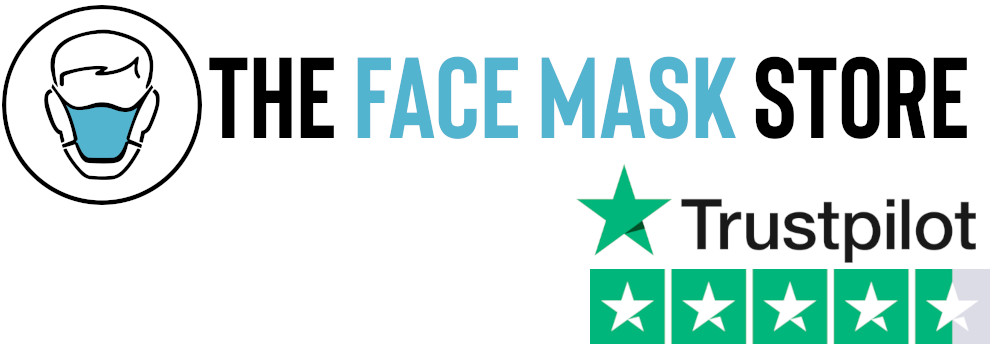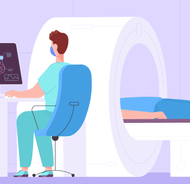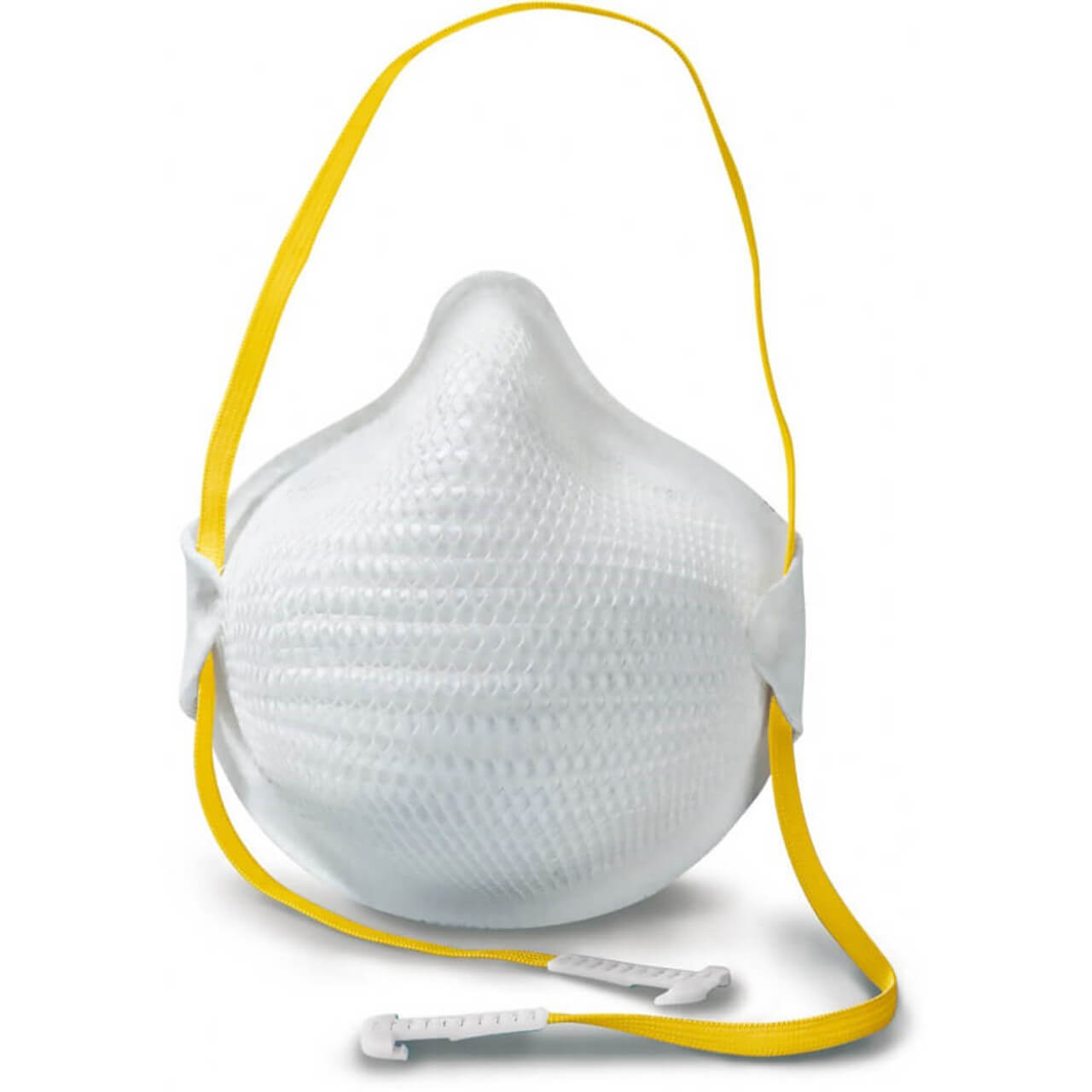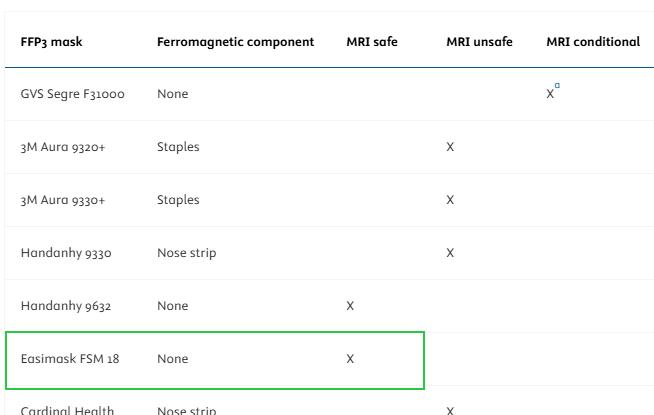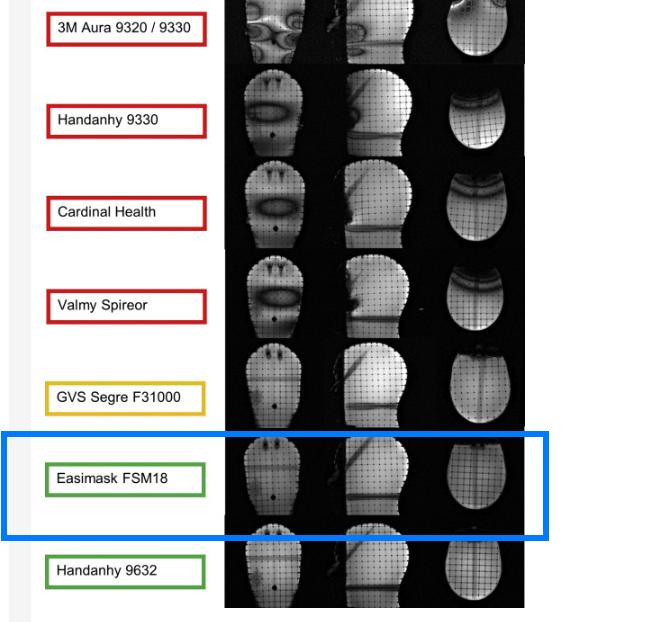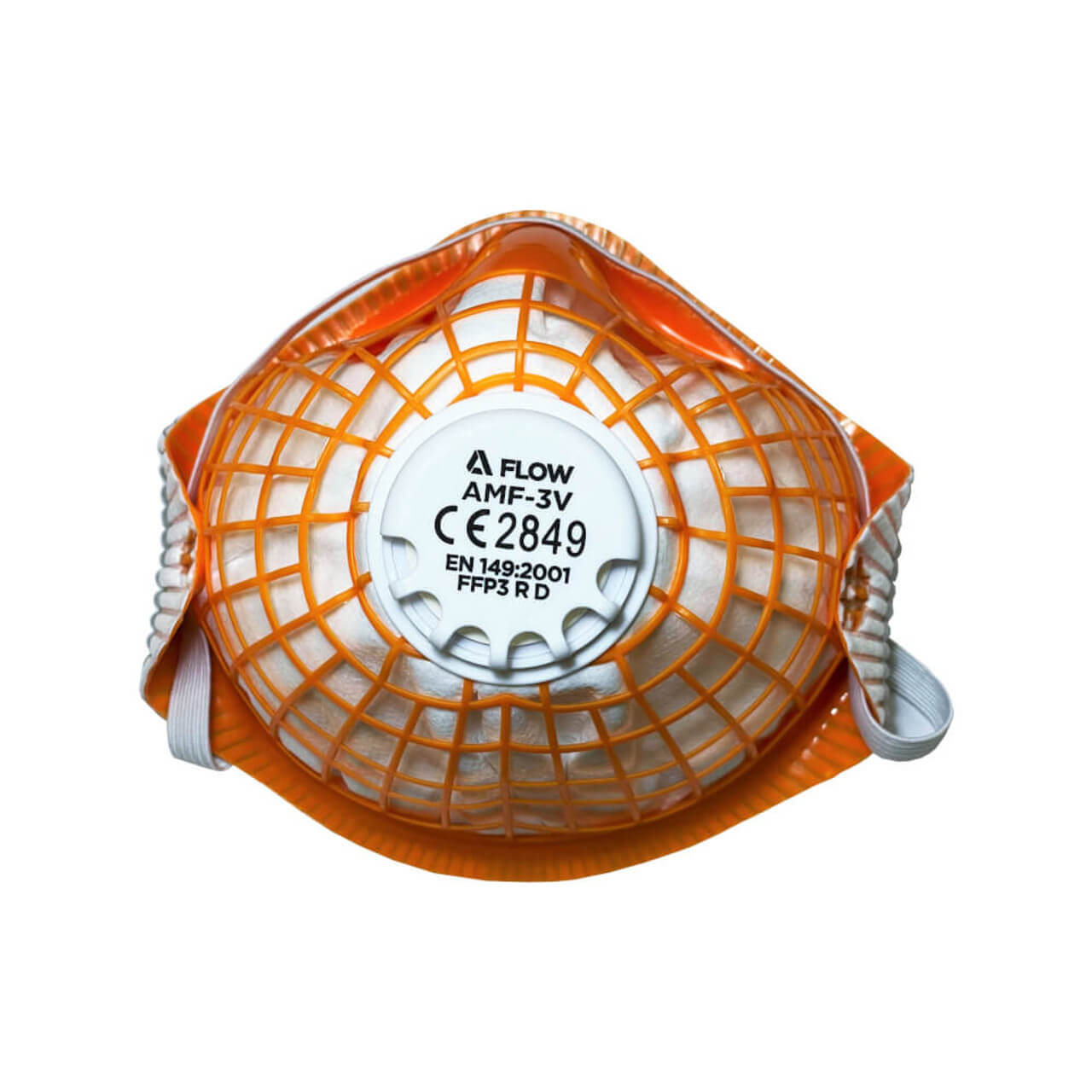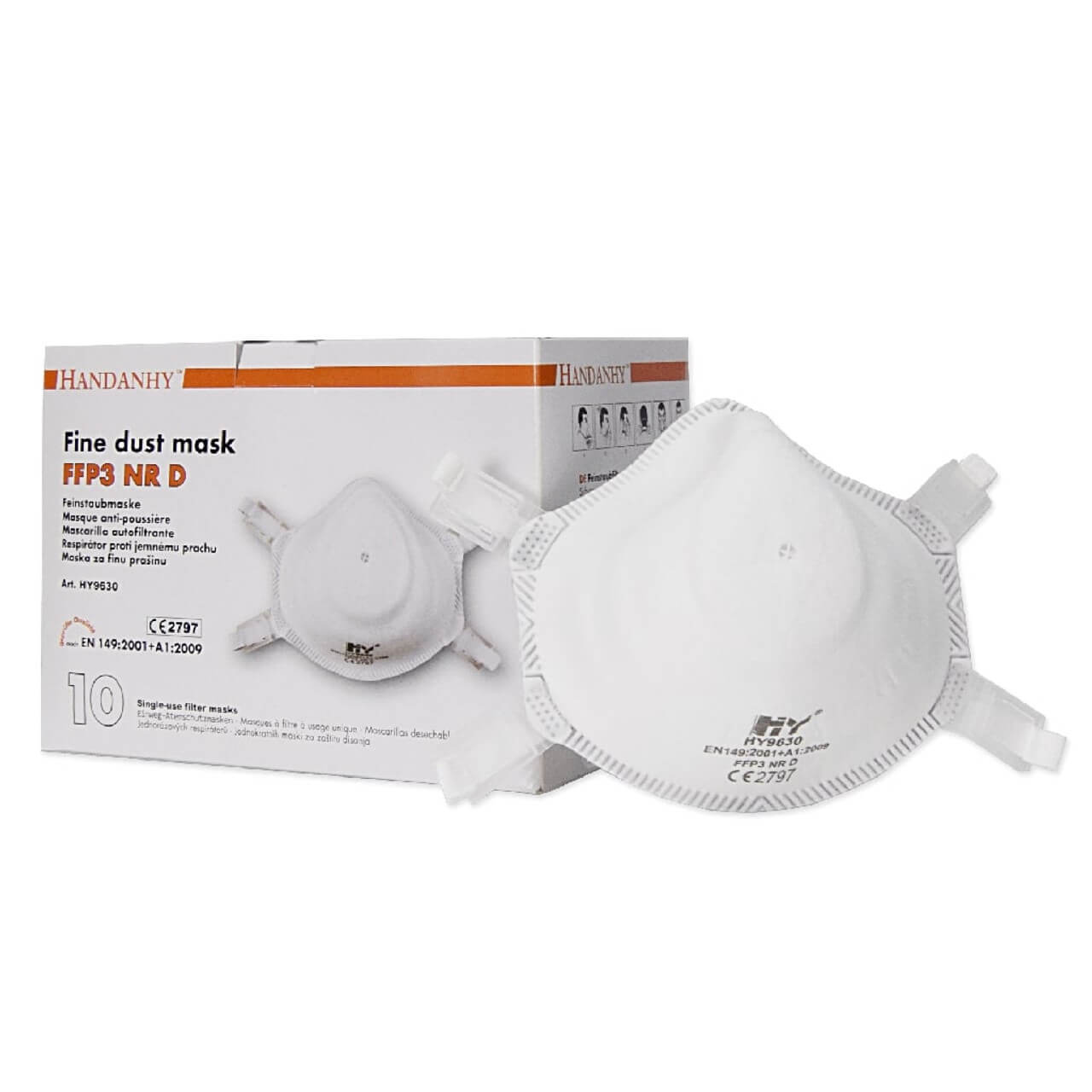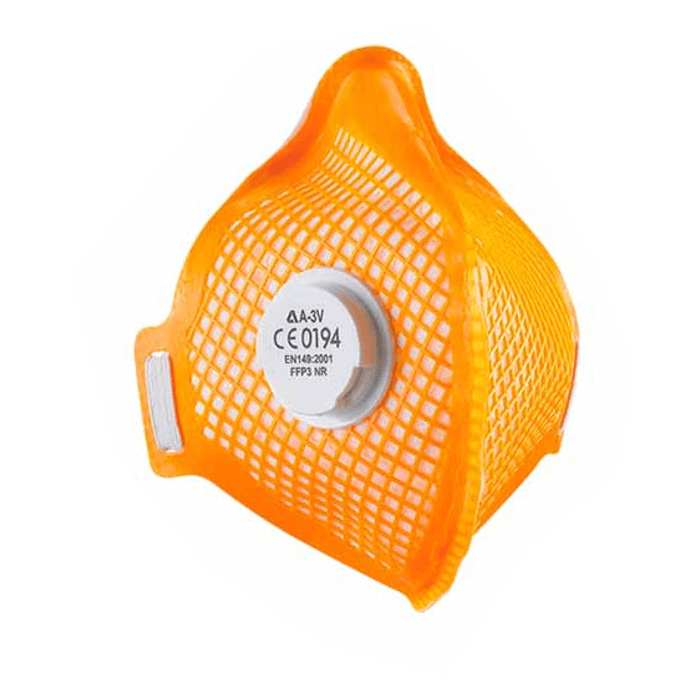Stay Protected: How to Choose a Safe Face Mask for MRI, CT and X-Ray Scans
Posted by Sam Tucker on 26th Jan 2023
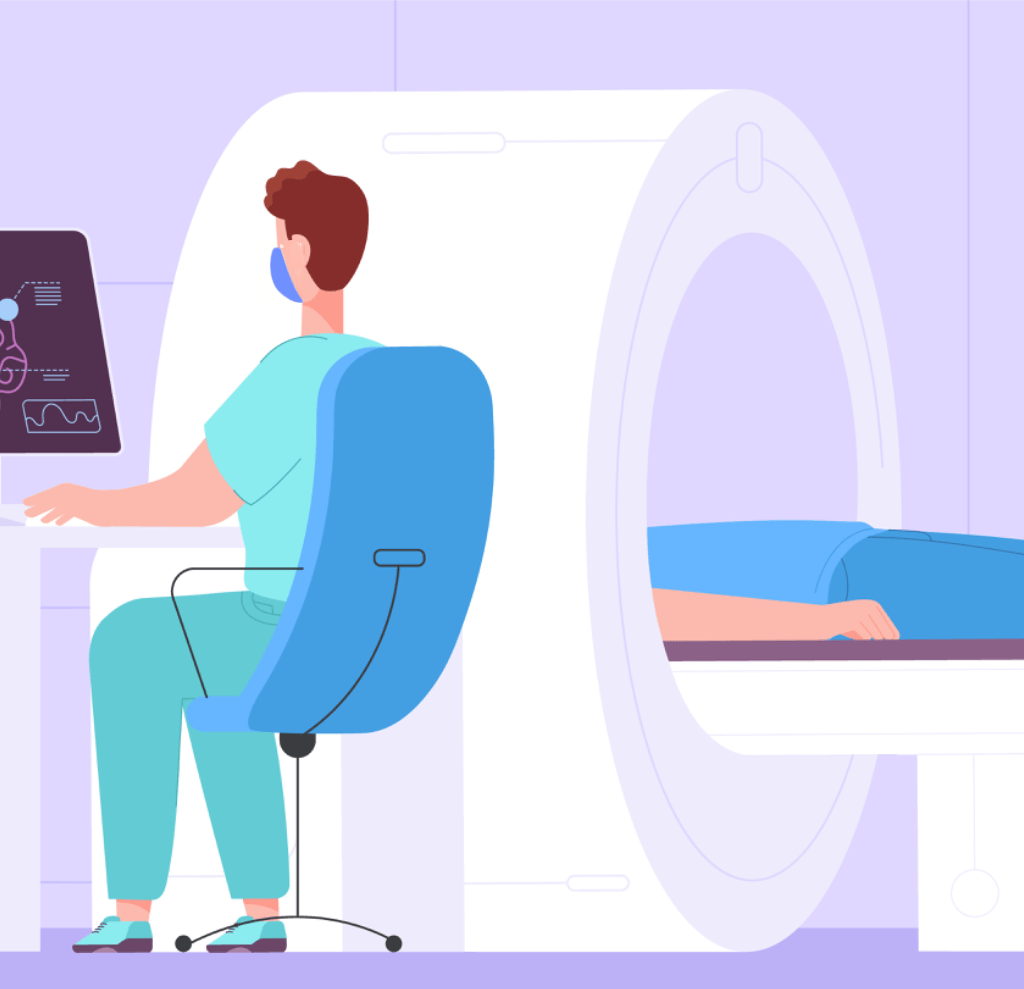
Stay Protected: How to Choose a Safe Face Mask for MRI, CT and X-Ray Scans
It's crucial to be informed of the potential risks connected with radiation exposure and the dangers of ferromagnetic metals before having an imaging test like an MRI, CT scan, or X-ray.
While a variety of medical disorders can be diagnosed and treated with the aid of these tests, it's crucial to take precautions to limit your radiation exposure and avoid your face mask hindering the procedure or disintegrating during the scan.
Wearing a face mask made specifically for use during imaging examinations is one approach to achieve this. We'll delve more into the value of wearing a face mask during imaging tests in this blog post, as well as the various types of face masks on the market and how to pick and wear the best one for your requirements.
Understanding the Risks Associated with Imaging Tests
X-rays, CT scans, MRI scans and other imaging procedures are crucial for both identifying and treating medical disorders. It's crucial to be aware that there are hazards associated with these tests.
The high energy X-rays or gamma rays used in imaging examinations to produce precise images of the inside of the body can expose a patient to radiation. While the radiation dose used during an imaging test is carefully regulated, ongoing radiation exposure increases the risk of cancer and other illnesses. It's crucial to remember that there is often extremely little chance that radiation exposure from an imaging test may cause cancer.
It's still crucial to take precautions to reduce your radiation exposure when you can. This is where using a face mask made especially for imaging examinations can be beneficial.
It's also crucial to remember that before having any imaging tests, you should let your doctor know if you have a history of cancer, are sensitive to radiation, or are pregnant. They will weigh the test's advantages and disadvantages and make the proper suggestions for you.
In conclusion, knowing the potential dangers connected to imaging examinations is crucial for making health-related decisions. Despite the relatively low risk, it's nevertheless vital to take precautions to limit your radiation exposure, such as using a face mask made specifically for imaging exams.
Explanation of Radiation Exposure During Imaging Tests
Face masks, especially those rated FFP2 or FFP3, can filter out microscopic airborne particles, such as dust, smoke, viruses and other contaminants. This can guard the wearer against breathing in dangerous particles that could lead to respiratory issues.
Disease prevention: Face masks can aid in the prevention of infectious diseases by capturing droplets that could be released during coughing, sneezing, or talking by an infected person. This is crucial in healthcare settings since there is a greater chance of transmission.
Radiation protection: ionising radiation utilised in CT, and X-ray scans can be filtered out by face masks especially made for use during imaging exams, such as FFP2 and above. MRIs are regarded as a non-invasive procedure because they don't involve ionising radiation.
Choosing the Right Face Mask for Imaging Tests

Selecting the proper face mask is essential for shielding your face from radiation exposure during imaging exams. Face masks come in a variety of styles, each with a unique set of features and advantages.
Surgical masks and FFP2/FFP3 respirators are the two most popular forms of face masks used during imaging testing. Disposable surgical masks have a loose fit and cover the mouth and nose. They are meant to withstand big drops or splashes of bodily fluids and are often constructed from a non-woven fabric like polypropylene.
Similarly, disposable FFP2/FFP3 respirators are made to fit snugly over the face and block at least 95% (FFP2) and 99% (FFP3) of airborne particles with a 0.3 micron particle size, including the ionising radiation used in imaging examinations. Typically, they are constructed from a variety of materials, including a filter layer, a metal nose clip or nonmetal preformed nose bridge, and straps that go around the ears.
Fit, material, and filtration effectiveness are significant considerations when selecting a face mask for imaging testing. To prevent air from leaking in or out, which would reduce its efficiency, the mask should be firmly secured to the face.
"Our recommendation is to use well fitted FFP2 or FFP3 respirator that can block ionising radiation during these procedures. You should also make sure the mask is appropriately certified by a recognised company like Alpha Solway, Easimask, Handandy and Moldex"
The Dangers of Metals and Face Masks in MRI Scans, CT Scans and X-rays
Even though protecting yourself with a face with a mask during imaging procedures is a good idea to reduce your risk of radiation exposure, you should be aware that some masks include metals that could be harmful in the presence of a magnetic field.
Metals that heat up easily in the presence of a magnetic field, such as iron, nickel, and cobalt, should be kept well away from MRI scanners to prevent the risk of injury or burns. In addition, a ferromagnetic metal object inside the mask might potentially injure or tear tissue if it were to be drawn towards the magnet with sufficient power.
Advice for Safe Masks to be Used During MRI Scans
MRI scans, or magnetic resonance imaging, employ a combination of a strong magnetic field, radio waves, and a computer to create high-resolution images of an organ or tissue inside the body. These pictures can aid in the diagnosis of injuries, cancers, and other anomalies that might otherwise go undetected by conventional imaging techniques. Although MRI scans are incredibly safe, some materials, such as Ferromagnetic materials, can be harmful when exposed to such powerful magnetic fields. As a result, measures must be taken to protect both patients and medical staff during MRI procedures.
Researchers from Cardiff University's Brain Research Imaging Centre examined eight filtering face pieces (FFP3) respirators in a study that was published in Clinical Radiology to look into potential effects on local heating, grid distortion, and imaging artifacts during MRI scans.
The internal lattice grid structure of the anterior part of the phantom head model was discovered to be altered by the five masks made of ferromagnetic materials, according to the study's authors.
It is vital to confirm with the mask's manufacturer or a healthcare practitioner before utilising a mask during an imaging exam, as not all masks contain ferromagnetic metals. Before undergoing any kind of imaging exam, it is vital to take off any metal objects, including a face mask.
In conclusion, it is recommended that patients undergo MRI imaging procedures while wearing a face mask for protection against radiation exposure. However, patients should be aware of the potential dangers of metals contained within the mask and should consult with the examining physician before using the mask.
Advice for Safe Masks to be Used During CT Scans

Computed Tomography (CT) scans combine X-rays and a computer to create images of the body's internal organs and structures for diagnostic purposes. Images like this can aid in the diagnosis of injuries, cancers, and other anomalies that could otherwise go undetected by conventional X-rays.
"Wearing metal during a CT scan might have serious health effects. When doing a CT scan, metal objects may be dangerously heated by the X-ray beam and cause the patient burns or other injuries. Also, the patient's face mask could be damaged by the scanner's powerful draw on any metal objects inside the mask"
Moreover, the metal might obstruct the images, making it difficult for the radiologist to get a clear view of the area being investigated and potentially leading to a wrong diagnosis or the need for additional scans. As a result, those who need to get a CT scan should tell their doctor if they have any metal in their bodies, and they should also avoid wearing metal objects like jewellery and watches.
Advice for Safe Masks to be Used During X-ray Scans
X-rays are used to create images of the body's interior using a very low dose of ionising radiation for diagnostic purposes. When used in conjunction with other imaging techniques, these pictures can reveal damage, tumours, and other abnormalities that could otherwise go undetected. Hospitals and other medical facilities often employ X-ray images to diagnose a wide variety of illnesses and injuries.
Which Masks are Safe to Wear During these Scans?
Face masks created exclusively for use during MRI, CT and X-ray scans have been developed by manufacturers as a solution to this problem. These masks are made of non-ferromagnetic materials and lack electronic components. Additionally, they can also be comfortably worn for long periods of time.
The study from Cardiff University's Brain Research Imaging Centre tested multiple different masks and deemed the Easimask FSM 18 and the masks as "MRI safe”
Which masks do we recommend?
TOP RATED
Moldex 3200 Air FFP3 Unvalved Mask
From £5.15 per mask
One of the most popular types of MRI safe protective face masks is from the Moldex disposable range. These Moldex FFP3 masks have been designed with an ActivForm® 3D shape that conforms to the contours and movements of the face, this eliminates the need for manual adjustments of a metal nosepiece, providing a comfortable seal. They are 100% metal-free design allows for safe, worry free use with medical equipment such as X-ray or CT/MRI machines.
This mask can be stored in this Moldex Storage Bag, however please refer to the manufacturers instructions as this is a non-reusable respirator.
Top tip: if you need a smaller size in this mask, go for the Moldex 3250 Air FFP3 Unvalved Mask
See the entire Moldex range here (all FFP3 and FFP2 Moldex masks we sell in this range are MRI safe)
CERTIFIED by NHS - MRI SAFE
Easimask FSM18 FFP3 Mask
From £3.99 per mask
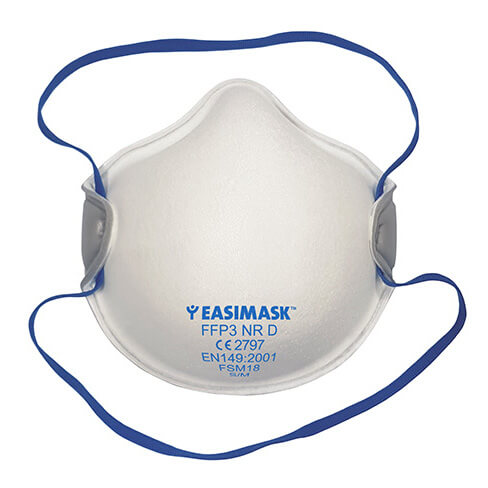
Although all the masks on this list are deemed by us (for information puposes only) as MRI/CT and X-ray Scan Safe, this is the only one that has been tested and approved as MRI-Safe by The MRI Physics Group at University Hospitals Birmingham NHS Foundation Trust and also Cardiff University Brain Research Imaging Centre. So you can rest assure it is a solid and safe option.
You can see further details from Clinical Radiology Online which demonstrates how this mast was tested and why it was deemed "MRI SAFE"
- Figure above is of MRI images, showing image artefacts caused by ferromagnetic components. Green represents MRI safe; orange, MRI conditional; and red, MRI unsafe.
The Custom-Fit FFP3 Easimask respirator is designed for maximum comfort and safety. Its ergonomic pre-formed design and face-seal technology provide a 100% pass rate on both the Qualitative and Quantitative Fit Testing procedures.
It features a preformed nose bridge and 360° inner seal for a secure fit, as well as a rigid shell and adjustable strap for a perfect fit on any head size or shape. It is latex, fibreglass and metal free, and its clogging tests on dolomite "D" and Type IIR splash resistance make it suitable for medical and healthcare use. Furthermore, it is individually sealed for hygienic storage and safe use.
BEST REUSABLE
Alpha Flow AMF-3V FFP3 Face Mask
From £2.49 per mask
The Alpha Flow SERIES has been engineered to enhance comfort and performance while ensuring a secure fit.
This FFP3 respirator from Alpha Solway is semi-reusable, which enables the mask to be used for more than one shift (please note it cannot be washed). This reusability contributes significantly to the overall value for money that this mask offers. This face mask does not include any metal and does not require regular adjustment due to the pre-formed nose bridge.
It can be used without risk in conjunction with MRI machines, CT scanners, and X-ray apparatus.
BEST DISPOSABLE VALUE
Handanhy HY9630 FFP3 Unvalved Face Mask
From £1.99 per mask
The HY9630 FFP3 masks are reliable, sturdy, portable, and comfy. Inhaling harmful dusts, mists, or airborne bacteria and viruses can be avoided thanks to the FFP3 filter. This mask has a filter with reduced air resistance, making it easier to breathe. The interior layer is soft and cushioned, so it remains comfortable for longer durations, and the mask's four-way adjustable straps allow you to find the perfect fit for your head and minimise the possibility of it slipping off. Nose bridge is preformed to ensure a snug and comfortable fit without the need for a nose clip. No metals mean it's safe for X-ray, CT, and MRI scans.
MOST PORTABLE
Alpha Mesh A-3V FFP3 Flat Fold Face Mask
From £6.49 per mask
The Alpha Mesh A-SERIES FFP3 mask is a one-of-a-kind design that not only gives a great fit, but is also easily collapsible for single-use and comes individually wrapped to prevent contamination. In addition to being completely metal-free, this face mask also has a pre-formed nasal bridge that avoids the need for constant adjusting. Use with X-ray, MRI, and CT scanners is not hazardous.
Wearing and Caring for Your Face Mask During an Imaging Test

Radiation exposure can be reduced by wearing a face mask during an MRI, CT scan, or X-ray. If you want the mask to do its job, though, you have to wear it and take care of it correctly.
FIT - Make sure the mask has a good fit for your face and that it completely covers your mouth and nose. The mask's straps should be tightened around the wearer's head. The mask may not be effective in its protective function if it is either too large or too small.
CHECK - You should also check that the mask fits snugly to avoid any air leaks. Straps may be adjusted as needed to do this.
FOLLOW - It's best to follow the guidelines provided by the manufacturer for cleaning and keeping your face mask. Some masks are one-time-use only and must be thrown away after being used, while others may be worn again.
Tips for Properly Putting On and Adjusting Your Face Mask
- The first step is to use soap and water to wash your hands for at least 20 seconds, or an alcohol-based hand sanitizer.
- Secure the mask's straps over your ears before placing it over your nose and mouth.
- Move the clip up or down until it rests comfortably on your nose bridge. Doing so will guarantee the mask seals properly and avoid air leakage.
- A properly fitted mask will prevent air from escaping around your nose and mouth.
- If the mask is too tight around your face or you're having trouble breathing through it, try loosening the straps or removing the nose clip.
- The mask should not be touched while being worn, and after it is in place, it should not be adjusted without first washing your hands.
- To remove the mask, lift it up by the straps rather than touching the front, and then throw it away or put it away correctly as directed by the manufacturer.
Conclusion
In conclusion, the effectiveness of a face mask in blocking radiation or an illness depends on how well it is worn and adjusted. By according to these guidelines, you can make sure the mask is properly set, covers your nose and mouth, and fits snugly. Once the mask is in place, do not touch it in any way, and remove it cautiously by the straps.
It is recommended that a face mask be worn during imaging procedures such as MRI, CT, and X-rays. It is critical, however, to select a mask that is appropriate for these tests, and to observe the necessary protocols for wearing and maintaining it. Masks made of ferromagnetic metals should not be used in scanners because they might overheat and cause burns or other injuries if they come into contact with the scanner's powerful magnetic field.
Ionizing radiation, which is used in imaging examinations, can raise the risk of cancer and other health issues if it is exposed to a patient in high enough doses. Therefore, it is crucial to tell medical staff about any metal in your body and follow the instructions and advice offered to ensure your safety during imaging examinations.
It is important to follow the guidelines and recommendations provided by healthcare professionals, to wear a well fitting FFP3 face mask and to choose one without ferromagnetic metals in order to protect against radiation exposure, and to inform them of any metal in your body prior to undergoing any imaging test.

